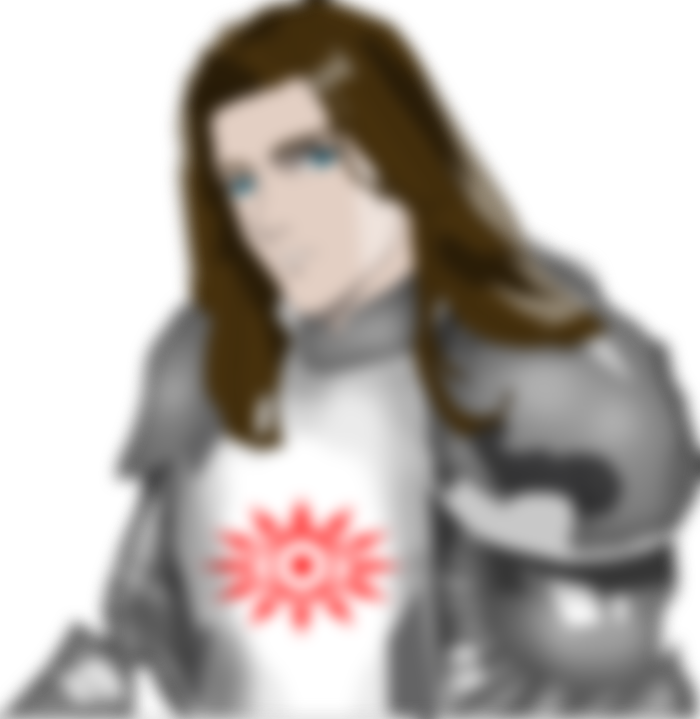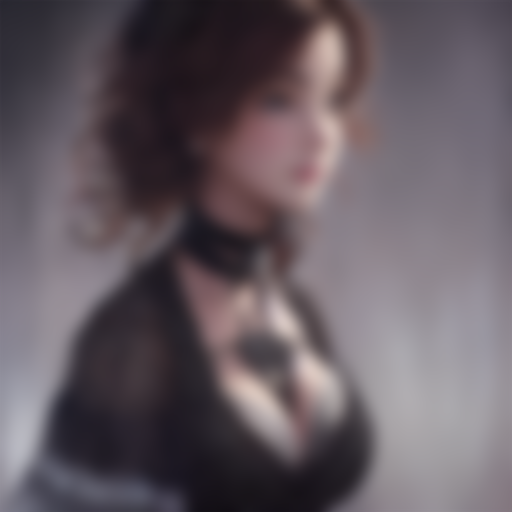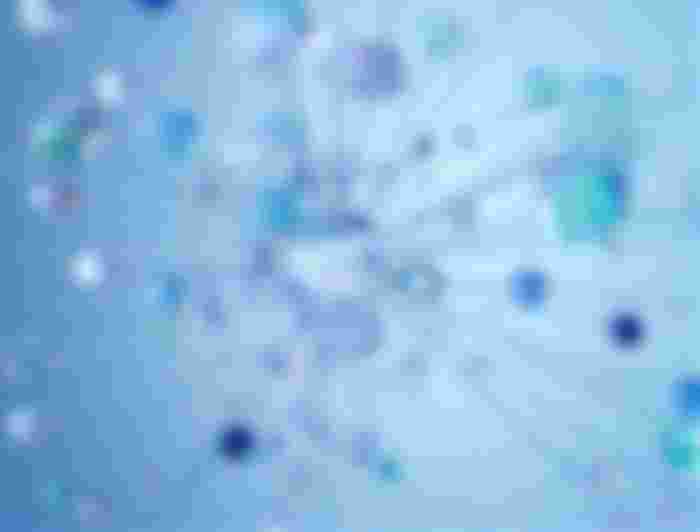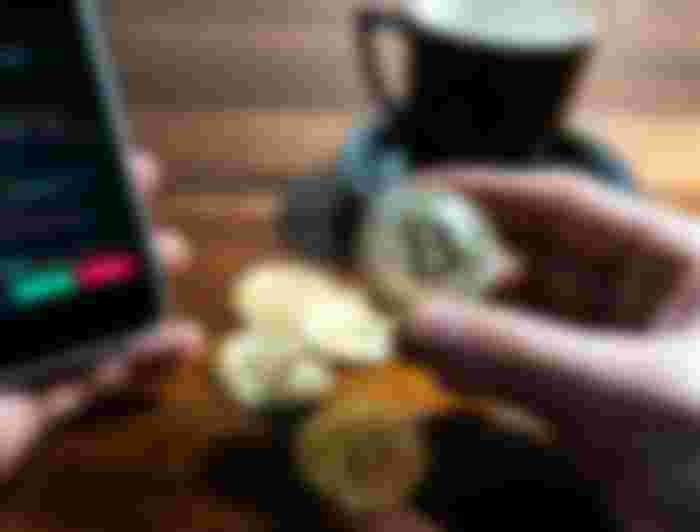My thoughts on AI art
Happy New Year, everyone!
I have wanted to write an article about AI art for a long time - and that's a big word, since I haven't written anything on read.cash for 5 months, as of now. Basically half a year.
But first, let's have a word about me and my relationship with art
I'm not an artist - or at least, I don't identify as an artist. I occasionally draw, but I don't identify myself as an artist or illustrator or whatever.
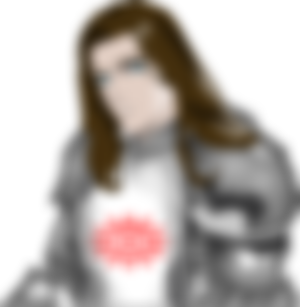
I work as a professional software developer now, but I didn't always identify as a programmer: before getting a job as one, I preferred not to identify as a programmer, under the assumption that my skills at programming are too low to warrant the title "programmer". Obviously, since I have been working as a software developer since 2020, that has changed, but I nevertheless wanted to mention it, to give another reason why I don't identify as an "artist" - at least not the audiovisual kind (if you consider programming to be an art though, you can say that I'm some kind of an artist myself).
Back between 2008 and 2014, I dabbled in remixing music - however, it was mostly just taking MIDIs and putting some soundfonts and VST instruments on them, then some VST effects. I only tried composing my own music a few times, and the end result was always highly disappointing, with only a few examples I'm proud of.
As long as my level of interest in producing visual art remains just as surface level, as my interest in music production and audio engineering back in the "good old days", I don't think I'll ever deserve the title "artist". Nevertheless, as surface-level my knowledge, skills and interests be in audiovisual arts, I can at least pride myself in being a jack of all trades (though, sadly master of none).
Nevertheless...
What is AI, and why should we (not) fear it?
AI stands for "artificial intelligence". It is difficult to exactly define what "artificial intelligence" is, but in Plain English, the best explanation would be "some kind of automaton or machine that performs a(n intellectual) task we normally expect to be performed by thinking humans". Basically, a machine that "thinks", or is capable of fooling humans into the belief that it thinks.
In fiction, particularly advanced AI is often portrayed as a threat to humanity: AI becoming self-aware and sentient like humans, no longer being content with being enslaved by humans. In fiction, AI has the capacity to truly become sentient like humans, and override its initial programming. Effectively, in fiction, AI truly is an artificial brain, and is capable of performing all of its functions: which include processing completely new information and judging it. In fiction, AI is often paired with bipedal robots that walk on two legs and wield firearms, just like humans - a far cry from real-life AI, which most often is just a piece of software running in a computer, having no or very limited access to information about the outside world, let alone the ability to physically interact with the outside world.
In real-life, most AI is far less sophisticated than what we see in fiction. If the human brains and fictional AI can be compared to the general-purpose Central Processing Units of a computer, then the real-life AI systems we have created so far can be more aptly compared to application-specific integrated circuits. The AI we have created so far - with a few exceptions - are very application-specific, and only as sophisticated as they need to be for a specific task.
For instance, all video games contain an AI of some kind: a set of IF-ELSE statements (either hard-coded into the game executable, or written as part of the game scripts) that govern how non-player characters - whether hostile or friendly - react to the player's actions (as well as their normal daily routines), govern the tactics of hostile characters in combat, etc. The rather crude artificial intelligence employed by video games can be predictable and repetitive, but for video games, it is perfectly sufficient.
In contrast, artificial intelligence for more serious applications tends to take a different approach: instead of a series of IF-ELSE statements, they build an artificial neural network, which then needs to be trained with some kind of input data. I'm not going to get into how artificial neural networks work, because even I myself have a limited understanding of it, but it basically involves doing all sorts of mathematical calculations that somehow replicates how the human brains work, in a sense. This is called "deep learning", and even the programmers themselves aren't fully aware what goes inside the AI's artificial mind: it's a black-box process even for the people who design and program it.
In short, artificial neural networks are fed some form of input (audiovisual media, text, etc.), and are told to produce similar results. The AI then begins to produce random results, and the more time we give it to train on human input data, the more convincing the AI-produced results will get, and this process is known as "deep learning". So far, this type of AI has been successfully trained to produce believable human faces, to produce anime characters, to produce classical music, to finish music or variants of an existing song, etc.
AI isn't some grand conspiracy to replace artists, writers, etc. - the biggest driving force (pun intended) behind the recent boom in AI is self-driving cars, though obviously, people are exploring other uses as well.
I won't even be surprised if AI gets integrated into corporate and government decision-making processes already in this decade.
Nevertheless, we ought not to panic: AI in its current form definitely won't be waging a destructive war on humanity.
Is AI art art?
Depends on what we consider art. AI "art" can be visually appealing - however, we all know that beauty is in the eye of the beholder, right?

Obviously, AI "art" isn't art in the sense of human effort being put into it: unless you include the collective efforts of all the artists who produced the images on which the AI was trained on (often without the consent of the artists).
I'd argue that being pretty alone doesn't qualify something as art: the feathers of a peacock, or certain natural rock formations can all be visually appealing to humans, but they were produced by nature, without any human intervention or input.
However, AI art isn't natural: it is very much artificial, even more so than art produced by humans. In fact, at the end of the line, the AI was trained on human-made arts, so, could we call it art in the end?
I'm not sure, to be honest.
Is AI art truly produced by AI?
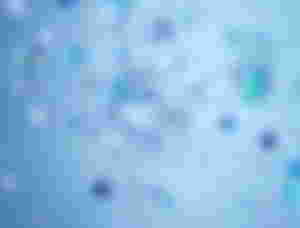
I already mentioned the fact, that artificial neural networks cannot really create anything from scratch - other than maybe output random noise - and have to be trained on human-produced data to produce output that resembles something (whether written text or audiovisual data) made by humans.
Effectively, it is a random noise generator connected to a discriminator of some kind that can decide whether the produced random noise resembles a dog or not.
Is this truly artificial intelligence? Not in the traditional sense. The AI itself doesn't really draw, but rather, it curates: it curates random noise. It more or less "learns" during the training process some mathematical correlations regarding the shape of a bus or a human being, it learns patterns, and shoehorns random noise to fit into said patterns and mathematical correlations. If we are being generous, we could say that it modulates random noise into something recognizable by humans, but yes, at the end of the day, the AI is more of a curator rather than an actual artist.
Isn't this just another panic about technological breakthroughs?
When crossbows were invented Medieval European nobility hated them and wanted them to be banned, because they allowed an untrained peasant to effortlessly kill a knight who spent his entire life training in the art of warfare.
Ultimately, however, pragmatism won: nobles' desire to win battles was stronger than their desire to "be honorable", so their armies continued to include conscripts and mercenaries armed with crossbows. Eventually, medieval blacksmithing has also advanced, creating armour resistant to crossbow bolts, at least at a distance.... Which worked out pretty well until gunpowder and firearms came along.
When firearms were first introduced to Japan, no doubt there was a visible segment, a loud minority within the samurai class, who considered it "dishonorable" and "shameful", because it allowed a poorly trained peasant to easily kill a samurai who spent his entire life training for warfare - however, most samurai embraced firearms: as we know, real-life and real history are quite different from Hollywood fiction (e.g. The Last Samurai), and in real-life, the majority of samurai prioritized winning their battles and wars over "being honorable".
When digital art started out, many traditional artists scoffed at it, and insulted digital artists, saying that they aren't "real artists". They considered the ability to undo actions and composite separate layers together to be cheating, they viewed the ability to manipulate individual pixels to be unfair, etc. However, in the end, technology won out, and I have never heard of anyone younger than 70, who unironically believes that digital artists aren't artists.
So how is AI art any different? Well, it's very different. When crossbows and firearms were introduced, it was still a human being taking the aim and pulling the trigger. In digital art, it's still a human being behind all of it, working like a real human artist. Not so much with AI, where all the hard work is done by a machine, and the human only has to enter a prompt and curate. I think we can all agree, that AI prompters are not real artists.
But does that actually matter?
Sure, when AI prompters call themselves "artists", it's cringe as hell and makes me want to gouge out my eyes and die of cringe-poisoning, but is that truly relevant to discussion?
Well, no, I don't think so. Being upset or outraged that someone can reproduce with less (or zero) effort what you have spent a lifetime to be able to be able to do is a valid emotion, but it doesn't make something more or less ethical, and it definitely ought not to be a factor in determining whether something should be legal or not.
Nevertheless, this recent surge in AI is different than previous technological breakthroughs. Previously, a frequently repeated argument against Universal Basic Income was "well, if all the normal jobs are automated away, we're all gonna be artists then lol". Well, that's not gonna happen now, is it?
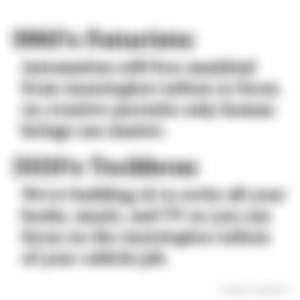
Whenever we discuss automation, labour-saving technology, and its potential to displace jobs, a common counterargument is "B-but there are going to be new jobs we can't even imagine!". However, against that, I have the following counterarguments:
That is not a universal law. Did horses get new jobs, after trains replaced their traditional jobs? No, they didn't - they became useless outside some niche uses (which largely revolve around entertainment for the elite). Even for humans, we can confidently say that all three times (all three Industrial Revolutions), the appearance of new jobs after the loss of old ones was a fluke, and isn't guaranteed to be repeated at all.
Oh yeah, automation is going to create new jobs: bullshit jobs. But I'll get back to this point later in this article.
To reiterate: Is it unfair that you have to spend a lifetime honing your craft, only for some random schmoe to come along and reproduce it within seconds with a machine? Yes, it is. But that doesn't make the machine's existence unethical. There are far more compelling arguments for AI art in its current form being unethical.
Is AI art legal?
As far as the law is concerned, art produced by artificial intelligence is in the public domain, and much to the chagrin of artists who are protesting against their art being used for training the AI, the act of scraping their art and training the AI on their art falls under Fair Use.
Even in the "worst-case scenario" - where an AI is trained on the works of a specific artist and/or prompted to draw something in the style of a specific artist - the process is (usually) considered transformative enough to be protected under Fair Use.
This makes AI art perfectly legal - though not necessarily ethical.
Is AI art ethical?
I'm not going to beat around the bush: AI art is controversial, and many claim that it is unethical.
Now, I know what most readers are thinking about: that just like the loom operators of old who went on their Luddite protests, artists fear being replaced by artificial intelligence.
Well, no, not really. Some artists do, but the majority don't. For the majority of artists complaining about AI art, this isn't even their primary complaint.
The main ethical complaint artists have about AI art is the origins of the data used to "train" the AI: specifically, copyrighted art. AI like StableDiffusion has been trained on the works of artists, who did not consent to their art being used in such a fashion, and many view this as blatant plagiarism - AI-produced art often contains the mangled watermarks of the artists it is "imitating", AI has been at times trained to imitate specific artists without the artist' consent, AI datasets contain copyrighted material, etc.
Now, I'm not going to beat around the bush: yeah, in hindsight, taking the copyrighted works of artists without their knowledge and consent was kind of a **** move, and if the AI tech bros knew about the fallout it would cause, they probably wouldn't have done it.
However, we have to consider the fact, that there are multiple sides to all stories. It's easy to listen to the artists' complaint and be 100% on their side, and yes, I agree, ideally, we should have given artists the option to opt in, instead of forcing them to painstakingly go through a thousand hoops to opt out (with no guarantee of success). Nevertheless. we have to remember, hear the story from the AI tech bros' point of view too: as far as they are concerned, they have built a machine that takes publicly available (stock) images and learns to produce similar results - which very much falls under Fair Use (though, that's the legality of it, not the ethics). Is it truly their job to curate and decide? If you buy the right to use stock photos off a certain website, is it your responsibility to painstakingly go through all images, one-by-one, to ensure that none of them are problematic or copyrighted? No, of course not.
As unethical it may be to use someone's art for such purposes without their permission, this ethical violation wasn't intentional: the AI tech bros aren't mustache-twirling villains intent on stealing your art and mass-producing cheap knockoffs at an industrial scale. Some AI prompters do shamelessly abuse artists who share anti-AI sentiments, but let's be real: terrible human beings will always exist, and you can't blame the AI for this.
And no, AI techbros, comparing the training of the AI to the process during which human artists take inspiration from the works of other artists is incorrect. AI art often contains the mangled watermarks and signatures of the human artists whose works the AI was trained on.
So, in regards to ethics, I say this: in hindsight, indiscriminately scraping publicly available images off the Internet was a bad idea, and it should have been an opt-in system instead of "painstakingly opt out, but success is not guaranteed". However, we do not live in an ideal world, we can't change the past, hindsight is useless: the genie is already out of the bottle, and the best we can do is damage-control.
What do I propose?
I know that artists will hate to hear this, but the genie is out of the bottle, and we can't lock it back in.
AI art isn't going to be banned - not only would it be a legal nightmare to ban it, but even if it went through, people would continue to produce AI art in secret. Such a ban would only put an end to legal research into the application of artificial intelligence in audiovisual art.
While in hindsight, it would have been ideal for the system to be opt-in instead of opt-out to begin with, we cannot change existing datasets, so as a stop-gap measure, I propose this: we amend copyright law, we amend Fair Use to cover all non-profit cases (I have already written an article proposing changes to the copyright system). If your AI has been trained on copyrighted works, you have to disclose it, you cannot use the AI-produced image for commercial purposes, and if possible, you have to credit the artists whose works you used to train the AI on. Alternatively, artists may be given the ability to demand royalties, if they can provide concrete proof that an AI that has been trained on their art has been used for commercial purposes.
I propose, that future art-producing AIs should be opt-in for the inclusion of art into their dataset, with artists being given the freedom to decide, if whether they allow for indiscriminate usage of their art, exclusively non-commercial use, or if they demand royalties for commercial use. In contrast, AI datasets created before this amendment would be restricted to purely non-commercial use.
I believe this would be a relatively fair compromise between the desires of artists, and the reality that the genie is already out of the bottle.
It would take a compromise from both sides: the AI techbros would have to accept reduced profitability and vow to gain profit from more ethical sources, while the copyright-holders (whether artists or publishers) would have to give up the right to police non-commercial use of their works.
The rabbithole goes so much deeper
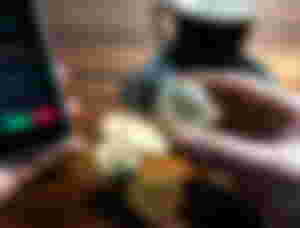
It is my personal belief, that the main problem with AI art isn't AI art itself, but rather the economical context in which it exists: capitalism. Or more precisely, transactional economics, in which you have to sell something to survive.
To put it bluntly, the benefits of technological progress - especially in the fields of automation, labour-saving technology, artificial intelligence, etc. - are not being distributed amongst the population evenly. A select few reap all the financial benefits, while the rest of the population may see a negligible rise in their living standards as a best-case scenario.
Lemme put it that way: under the current economical system, what happens, when automation displaces your job? That's right, you lose your livelihood, and if you don't intend to starve to death, you better find a new job real fast. Good luck.
Since the 1970s, productivity has multiplied, risen by around 700% or more. Yet the salary of the ordinary worker has stagnated. The salary of CEOs has risen by around 1400% since the 1970s, while the salary of the ordinary worker has stagnated.
In order to artificially maintain full employment and the 40-hour work-week in an increasingly automated world, we invent new fake jobs - so-called "bullshit jobs" - to compensate for the displacement of real jobs by automation. Everyone gets to sit at an office 8+ hours a day, bored to tears, their eyes glued to a computer, performing a task that is either straight-up pointless, or could be easily automated away if necessary.
I'm not a Luddite. I support labour-saving technology. I support automation. I support artificial intelligence. In an ideal world, automation would be celebrated, because it would increase our leisure time and result in us having to work less. In the clown world we live in, automation is feared and shunned, because it takes away our jobs, which are our only way to financially support ourselves - because our society is deathly afraid of wealth redistribution and is obsessed with making everyone work 9-to-5, even if it's completely pointless.
And this is my main gripe with AI and AI art. I'm all for automation - but not if forces career artists to return to the cubicle, working a job they hate (a job that literally only exists to artificially make everyone busy).
I have always been a proponent of Universal Basic Income. In an ideal world, artists would be confident in remaining financially stable, regardless of the type of art they produce, regardless of the AI competition that exists, etc. In an ideal world, citizens of a first world country would be entitled to first world living standards by birthright, rather than the machinations of an elite class of capital-owners.
In an ideal world, profitability would take a backseat to human needs and human rights.
In hindsight, we as a species should have had a frank discussion about the nature of labor and employment, about the economical system, before experimenting with AI art.
Again, I'd be all for AI art, if we lived in the more ideal world, where financially stability is guaranteed to artists regardless how profitable their art is. I'd be all for AI art, if we had Universal Basic Income.
In the end, my opinion is irrelevant
It ultimately doesn't matter whether I support AI art or not.
Whether I like it or not, AI art is here to stay, AI art is in the public domain, and usage of publicly available artworks for training an AI is protected under Fair Use.
My opinion that AI art in its current form is highly unethical is just that: a personal opinion that wouldn't hold any weight in a courtroom. What we consider unethical is often perfectly legal, and vice versa. That's just how it is. The genie is out of the bottle, and much to the chagrin of artists, AI art won't be banned.
However, in a way, AI art makes me happy, because it demolishes an often-repeated counterargument against Universal Basic Income, the nonsensical claim, that in a fully-automated future, "we will all be career artists". Well no, we won't be.
So, my closing thoughts are this: the controversial topic of AI is one with nuances. It is far more complex than "evil robot plagiarizes our beautiful art". With that being said, I do sympathize with artists who are negatively effected. AI art highlights some even greater problems at hand.
I predict, that the novelty of AI art will eventually fade away, and when it ceases to be controversial, the artists will reluctantly put it into their own inventory of tools, just like they did with computer software.
